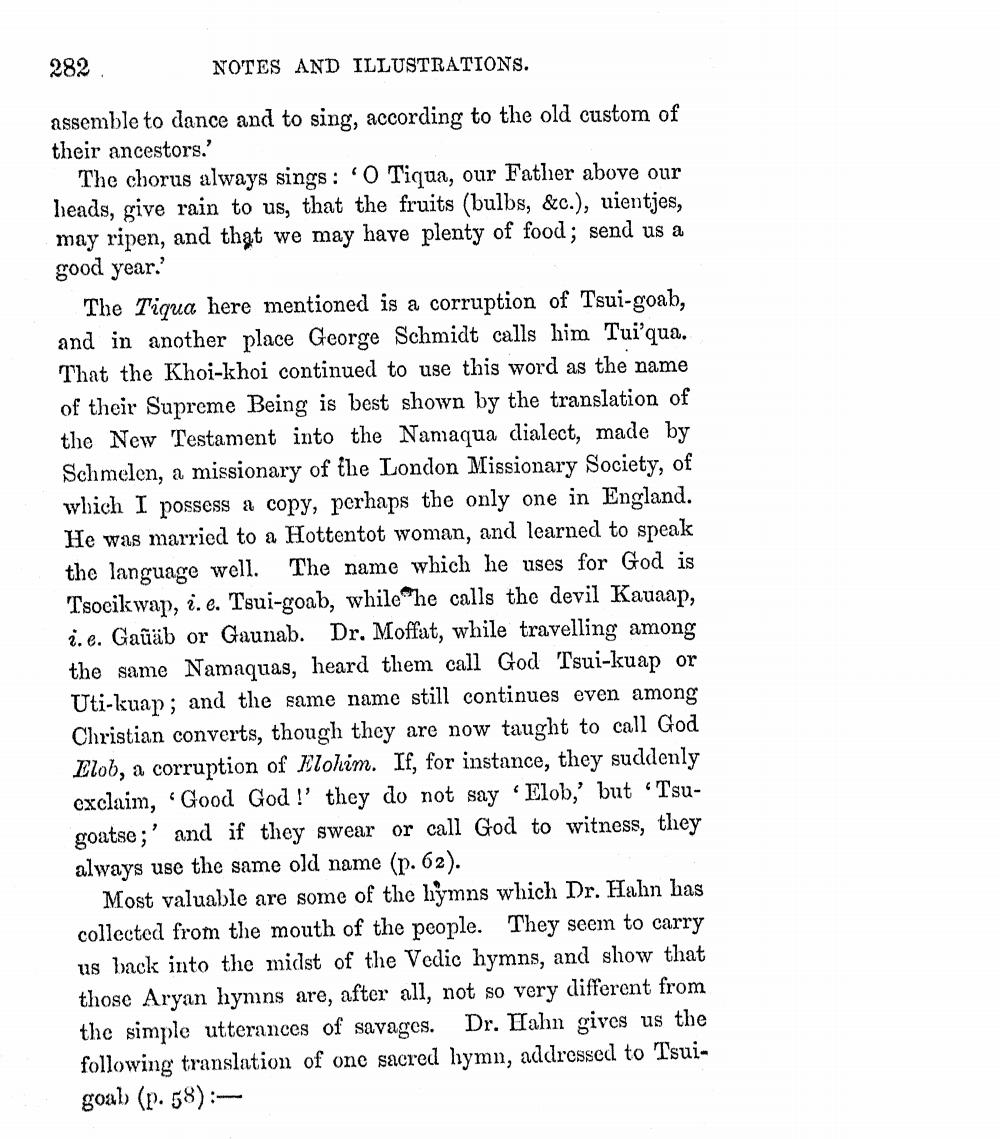________________
282
NOTES AND ILLUSTRATIONS.
assemble to dance and to sing, according to the old custom of their ancestors.'
The chorus always sings: 'O Tiqua, our Father above our heads, give rain to us, that the fruits (bulbs, &c.), uientjes, may ripen, and that we may have plenty of food; send us a good year.'
The Tiqua here mentioned is a corruption of Tsui-goah, and in another place George Schmidt calls him Tui'qua. That the Khoi-khoi continued to use this word as the name of their Supreme Being is best shown by the translation of the New Testament into the Namaqua dialect, made by Schmelen, a missionary of the London Missionary Society, of which I possess a copy, perhaps the only one in England. He was married to a Hottentot woman, and learned to speak the language well. The name which he uses for God is Tsocikwap, i.e. Tsui-goab, while he calls the devil Kauaap, i.e. Gaūäb or Gaunab. Dr. Moffat, while travelling among the same Namaquas, heard them call God Tsui-kuap or Uti-kuap; and the same name still continues even among Christian converts, though they are now taught to call God Elob, a corruption of Elohim. If, for instance, they suddenly exclaim, "Good God !' they do not say "Elob,' but "Tsugoatse;' and if they swear or call God to witness, they always use the same old name (p. 62).
Most valuable are some of the hymns which Dr. Hahn has collected from the mouth of the people. They seem to carry us back into the midst of the Vedic hymns, and show that those Aryan hymns are, after all, not so very different from the simple utterances of savages. Dr. Tahn gives us the following translation of one sacred hymn, addressed to Tsuigoal) (P. 58):




